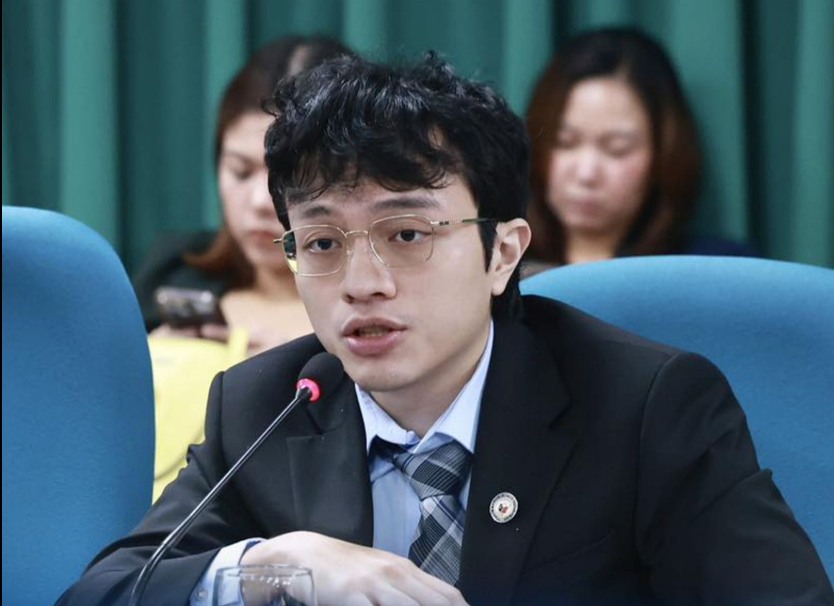On July 25, 2025, the Supreme Court of the Philippines issued a unanimous ruling that sent ripples across the political landscape: it nullified the most recent impeachment complaint filed against Vice President Sara Duterte. This decision, rooted in constitutional procedural safeguards, has ignited a fierce debate among legal experts, politicians, and the public alike. Some see it as a necessary reaffirmation of the rule of law, while others perceive it as the harbinger of a looming constitutional crisis. The critical question remains: are we witnessing the emergence of a crisis, or are we witnessing the steadfast application of constitutional principles?
At the core of the Court’s ruling lies the interpretation of a seemingly straightforward but profoundly significant constitutional provision—the “one-year bar” rule enshrined in Section 3(5), Article XI of the 1987 Constitution, which states: “No impeachment proceedings shall be initiated against the same official more than once within a period of one year.” This provision was designed to prevent the abuse of impeachment as a political weapon, ensuring stability and procedural integrity in the process of holding public officials accountable. The Supreme Court’s decision hinges on this clause, asserting that the complaint filed against Vice President Duterte was prematurely initiated, as an earlier verified impeachment complaint had already been filed and transmitted earlier this year. Consequently, the Court ruled that, under the Constitution, no new complaint against the same official could be validly entertained until after February 6, 2026. This ruling underscores the nature of judicial review, the separation of powers, and the boundaries of political processes. Some critics argue that the Court’s intervention represents an overreach, effectively inserting itself into what is traditionally viewed as a political arena—the impeachment process. Others see it as a necessary act to uphold the Constitution’s procedural safeguards, preventing the executive or legislative branches from circumventing constitutional mandates through bureaucratic delays or political machinations.
A crucial aspect of this case involves the role of the Secretary General of the House of Representatives. The question revolves around whether the Secretary General has the discretion to delay or defer the transmittal of a verified impeachment complaint to the Speaker—a step necessary for its inclusion in the House’s agenda and subsequent referral to the Committee on Justice. The Supreme Court appears to have rejected any interpretation that would permit such discretion. Instead, it reaffirmed the ministerial nature of the Secretary General’s duty, as prescribed in Section 3(2), Article XI, which states that a verified complaint “shall be included in the Order of Business within ten session days, and referred to the proper Committee within three session days thereafter.” The Court’s ruling emphasizes that this timetable is mandatory, leaving no room for political or bureaucratic delay. Once the complaint is properly verified and endorsed, transmittal to the Speaker must be immediate and automatic. This procedural clarity underscores an essential principle: the integrity of the impeachment process depends on strict adherence to constitutional timelines. Any deviation—be it intentional or accidental—undermines the rights of the complainants, the accused, and the public’s trust in the process. The Court’s decision, therefore, is less about the individual allegations against Vice President Duterte and more about safeguarding the procedural safeguards that ensure fairness and impartiality.
The Supreme Court clarified that its ruling does not touch upon the substantive merits of the impeachment complaint or the allegations against Vice President Duterte. The decision is purely procedural—an affirmation that constitutional safeguards, once invoked, must be respected. This distinction is critical. It signals that the Court’s role is not to serve as a political arbiter or to shield anyone from accountability but to ensure that the mechanisms for accountability function within the bounds of the Constitution. By rejecting shortcuts and procedural manipulations, the Court reinforces that due process is a non-negotiable aspect of any impeachment proceeding. In a broader sense, this ruling highlight the constitutional principle that accountability must be rooted in law, not political expediency. It sends a clear message that the rule of law, rather than political will or majority power, should govern the process of impeaching high officials. The integrity of the constitutional system depends on adherence to procedural rules designed to protect both the accused and the accusers.
The question of whether this development constitutes a constitutional crisis hinges on perceptions of the balance of power and the potential for conflict among government branches. A constitutional crisis typically arises when one branch disregards or challenges the authority of another, leading to a breakdown in the constitutional order. In this case, some might argue that the Supreme Court’s intervention challenges the legislative branch’s prerogative to initiate impeachment, thereby risking a clash that could paralyze the process. However, given the current composition of the Senate and the political landscape, it seems unlikely that the impeachment court—comprising senators—would openly defy the Supreme Court’s ruling. Historically, the Senate, as the impeachment tribunal, has shown respect for the Court’s authority, particularly when procedural issues are involved. In fact, the ruling provides the Senate with a legal and political basis to exercise restraint, projecting an image of fidelity to the rule of law while avoiding a potentially divisive confrontation. This strategic restraint can be viewed as a form of constitutional compliance rather than crisis. It suggests that both branches are aware of their constitutional limits and are willing to operate within them, even amid political tensions. The Court’s reaffirmation of judicial review over procedural adherence underscores that even legislative prerogatives are subject to constitutional boundaries—an essential safeguard in any democratic system.
This juridical development invites a broader reflection on the delicate balance between law and politics in the Philippines’ constitutional system. Impeachment, inherently political, requires procedural checks to prevent abuse, yet it must also respect the constitutional timelines and safeguards established to protect due process. The ruling also revitalizes the importance of procedural clarity. As the country navigates an increasingly polarizing political landscape, clear constitutional guidelines serve as anchors that prevent drift into disorder. The decision sounds as a reminder that even high-stakes political processes like impeachment must be grounded in constitutional law—an enduring legal framework that must be respected for the system to function effectively.
Looking ahead, the ruling may influence how future impeachment complaints are filed, processed, and litigated. It may prompt lawmakers to revisit and clarify procedural rules or introduce reforms that reinforce the importance of timely transmittal and adherence to constitutional deadlines. For Vice President Sara Duterte, this means a temporary reprieve—no new impeachment complaint can be validly filed against her until after February 6, 2026. While this provides a window of political stability, it also underscores the importance of procedural adherence in maintaining the legitimacy of impeachment proceedings. In the longer term, the ruling underscores an essential principle: constitutional compliance is not optional. Whether in impeachment, elections, or governance, adherence to procedural safeguards and constitutional mandates is paramount. It ensures that accountability is meaningful, that the rule of law prevails over political expediency, and that the democratic fabric remains intact.
Whether this episode leads to a constitutional crisis or a reaffirmation of compliance depends largely on how the various branches of government, especially the legislative and executive, choose to interpret and respect the Court’s ruling. The prudent path lies in honoring constitutional mandates, exercising restraint, and recognizing that the rule of law must guide even the most contentious political battles. Only then can the Philippines sustain a truly democratic, accountable, and resilient political system—one where the principles enshrined in the Constitution remain inviolable, guiding the nation through moments of uncertainty toward a future anchored in legality and justice.




